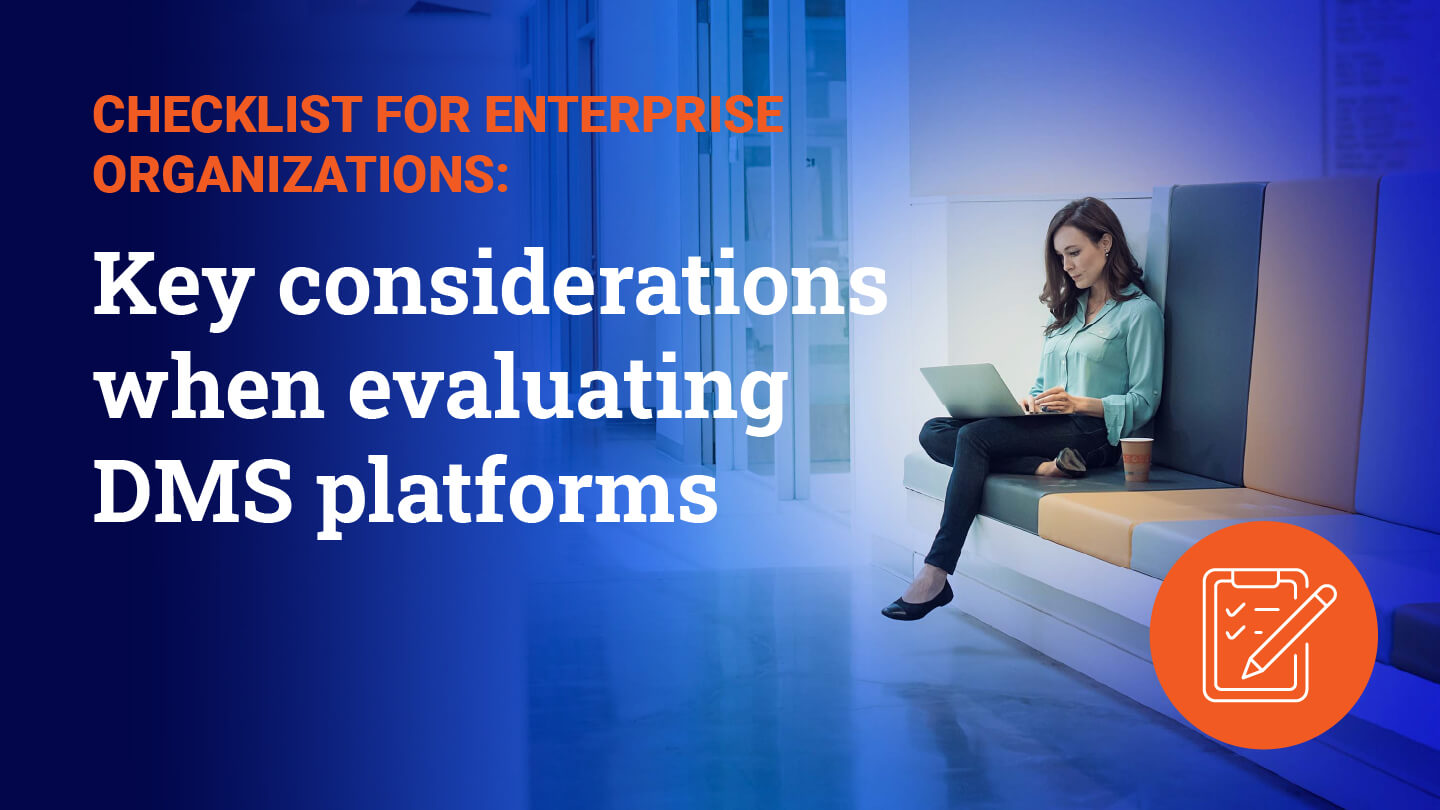How to select a document management solution that meets the unique requirements of your legal department.
Remote and hybrid teams are the new normal. Advancements in modern document management and cloud technology have brought about more secure, agile, and productive workflows and processes. These new capabilities enable legal professionals to work more productively and collaboratively, while providing a higher level of security and governance for sensitive legal information.
You know that mobility, accessibility, and security are essential in today’s technology-driven workforce, but how do you know what tools are right for your organization? Fair question. And before you invest time or money in upgrades, it’s essential to distinguish the unique functional DMS requirements of legal departments from those of more general enterprise users.
In “15 Questions for Legal Operations to Ask When Evaluating a DMS,” we pinpoint 15 questions to ask DMS vendors to help you quickly narrow the field. The answers will help you determine whether they align with your legal department’s specific requirements. But first, you should be very clear about what those requirements are.
What are your organization’s goals in adopting new technology?
Understanding your organization’s digital landscape and document management needs is a vital first step in the DMS evaluation process.
Audit your systems
First, identify what systems are currently in place within your organization:
- to find and incorporate past work
- to collaborate internally and with outside counsel
- to store documents and emails for future access
Map out the desired changes and improvements
Bear in mind that adoption is critical to the success of any new implementation. Your people are far more likely to use and advocate new technology when they feel their voice was heard in the development phase. Make sure everyone who will use the new system is involved at this stage — and take their input seriously. Consider a roadmap for incremental change as a means of improving user adoption, rather than all-out change upfront.
Determine your priorities against your objectives
Once you have agreed to a general list of improvements, prioritize them. What is most important to your organization is likely to be a deciding factor in choosing a vendor.
Choose a vendor that is committed to your success
When you have a thorough understanding of your organization’s needs and priorities and are ready to begin the vetting process, review these questions with any vendors you are considering. A DMS vendor should understand your department’s organizational needs.
For example, ease of use is essential. An intuitive interface and version control enables collaboration across the enterprise and with outside counsel. The solution should offer flexible suggested filing locations and document history for documents as well as emails. For maximum efficiency and satisfaction, look for display timelines and dashboards that give insights into productivity across your department.
Make your knowledge work for you
Implementing new software can be a logistical pain point if the DMS is not compatible with your existing legal systems or technology, so find out whether (and how) system integrations are managed. A secure, user-friendly DMS solution that can meet your organization’s present and future DMS needs will make your legal department more organized and productive.
Read “15 Questions for Legal Operations to Ask When Evaluating a DMS” to help you choose a partner that can make your knowledge work for you.





